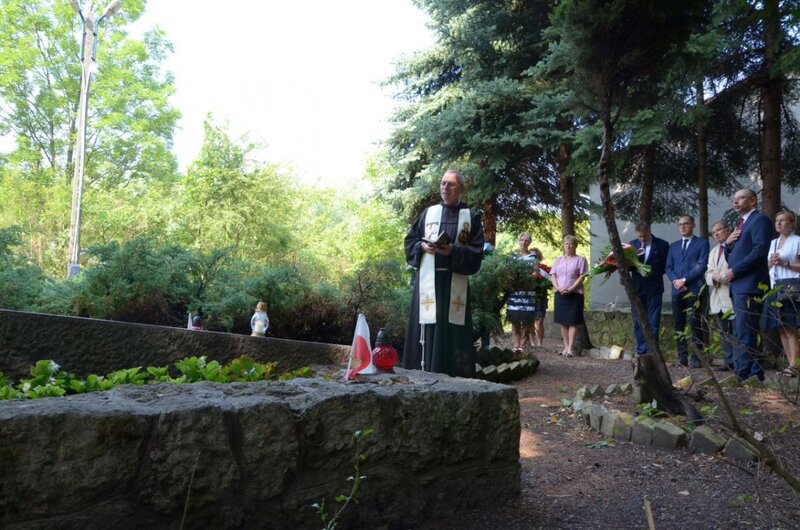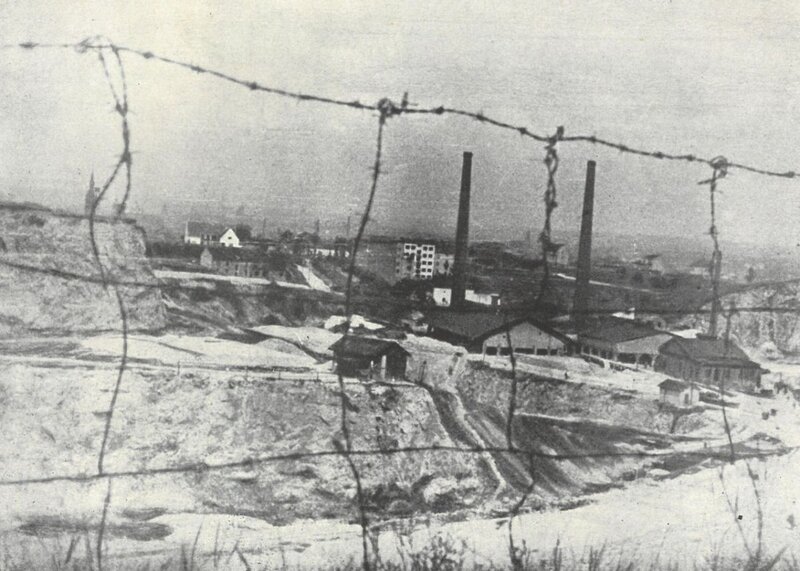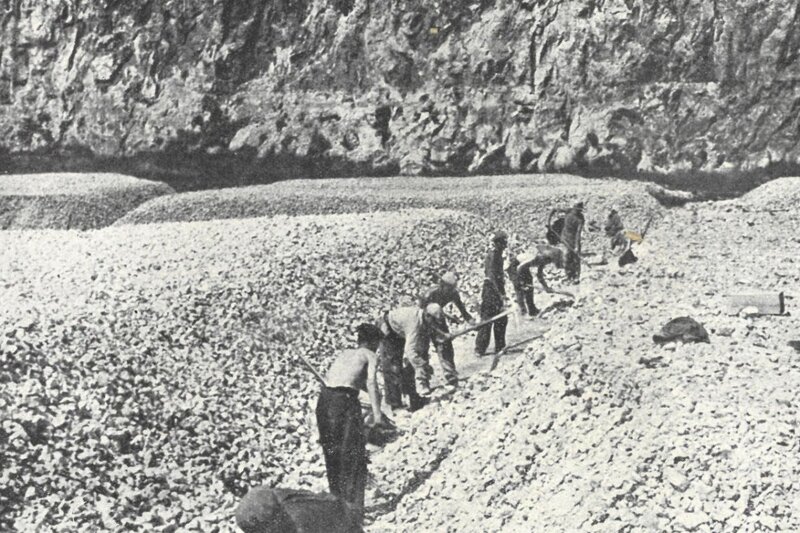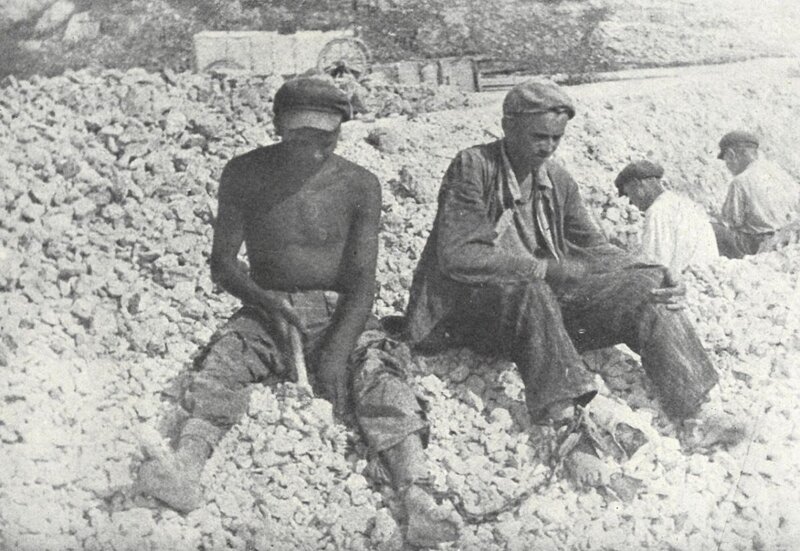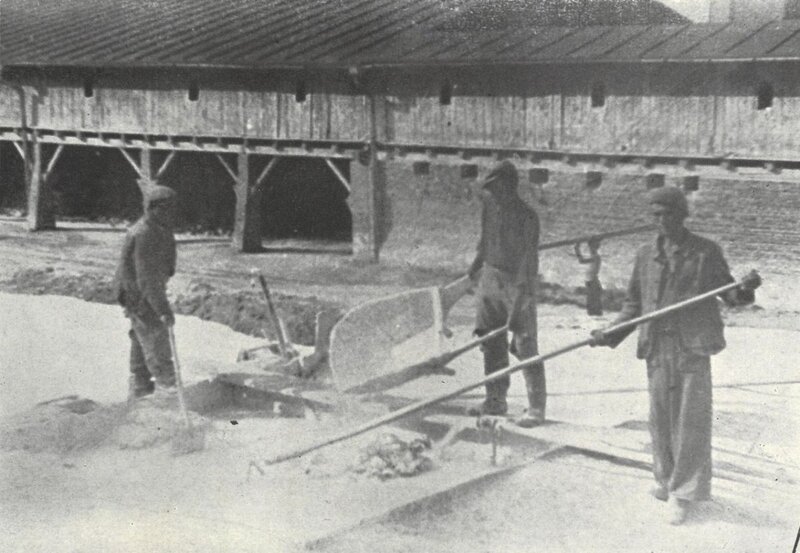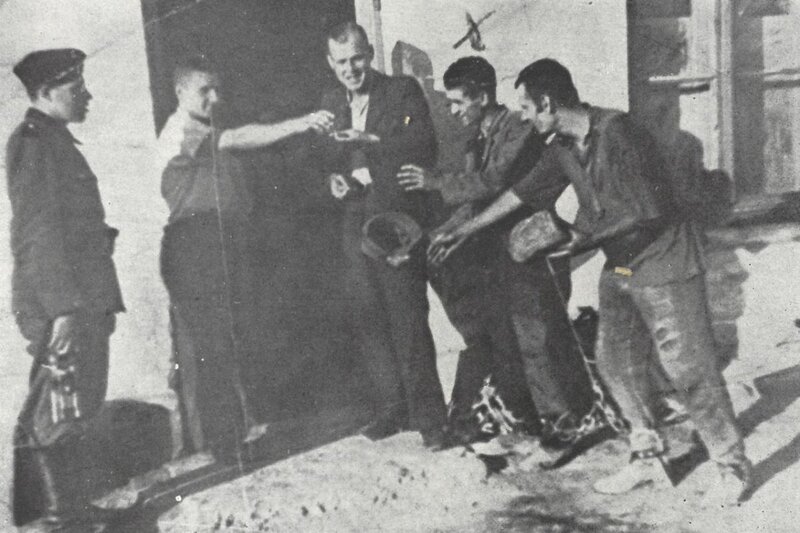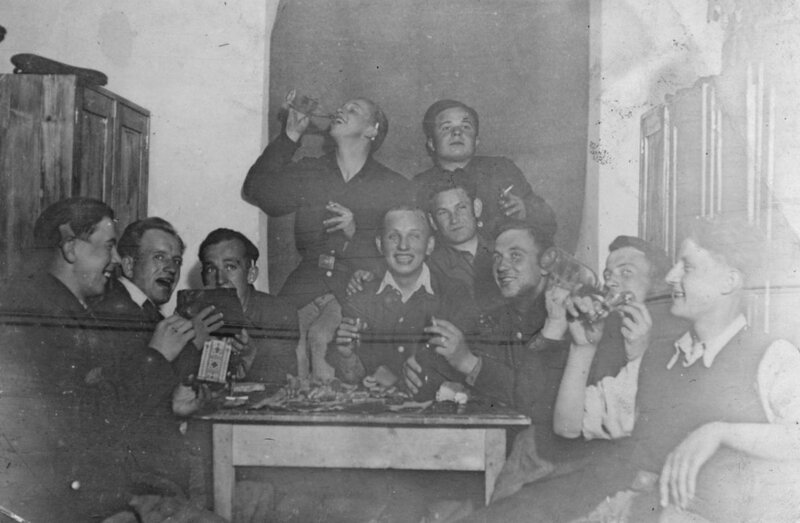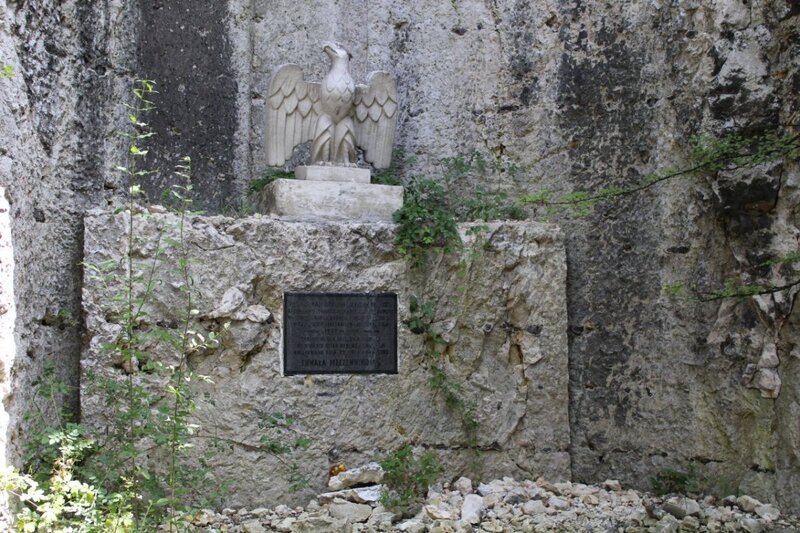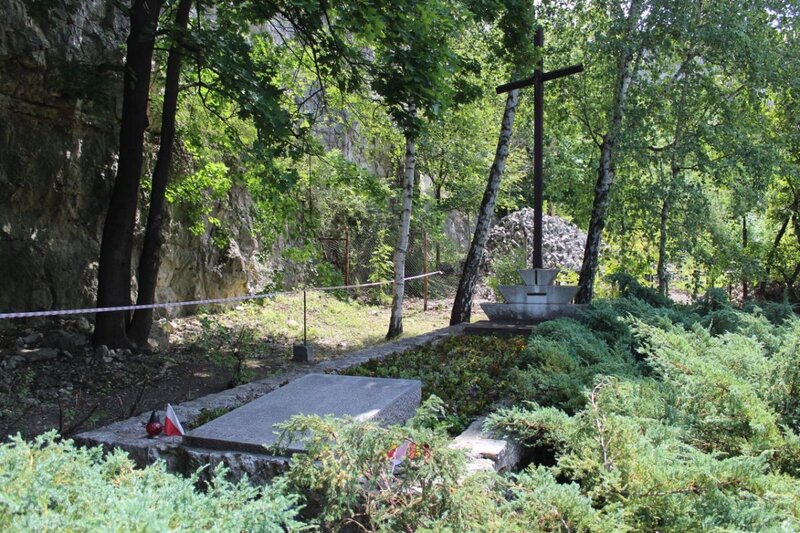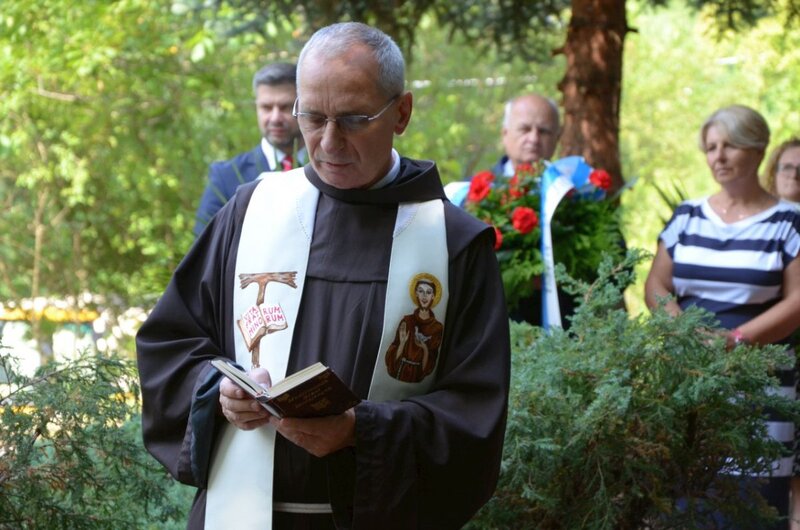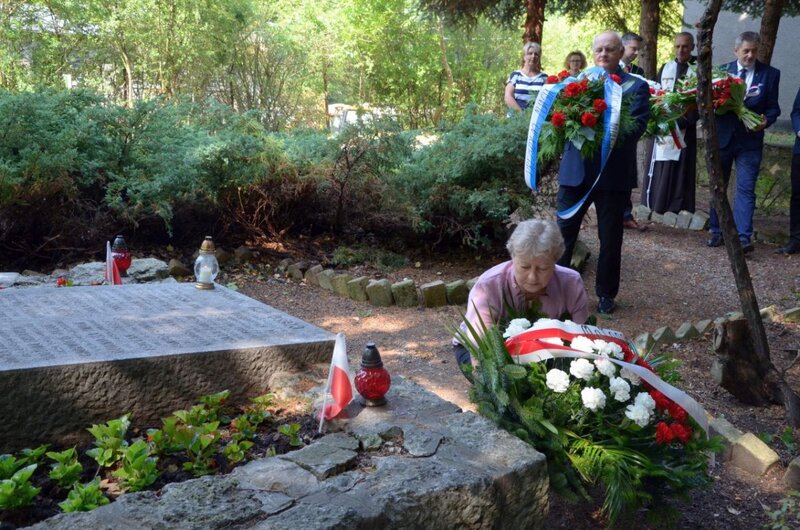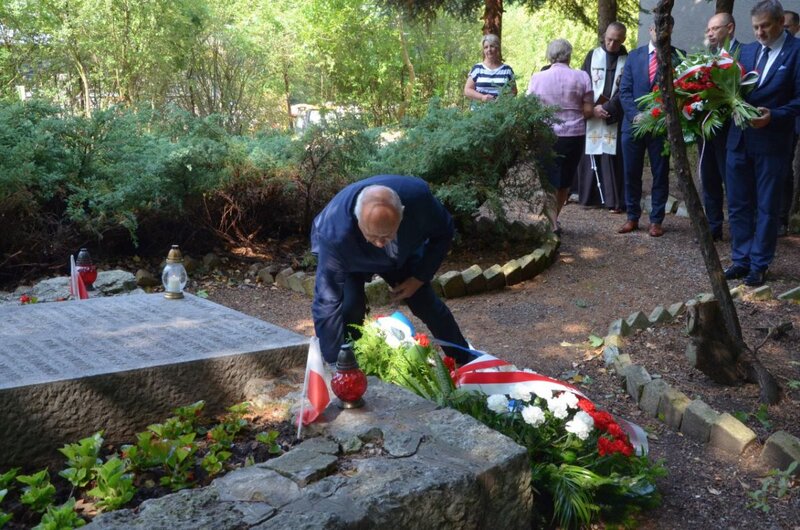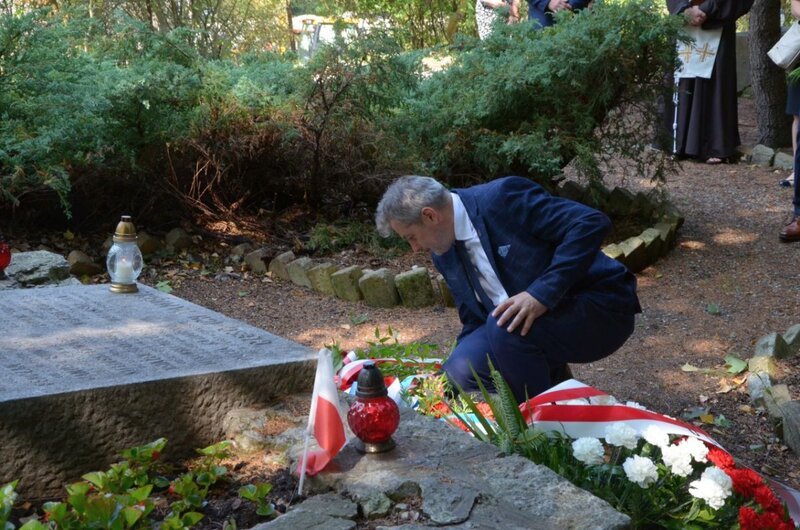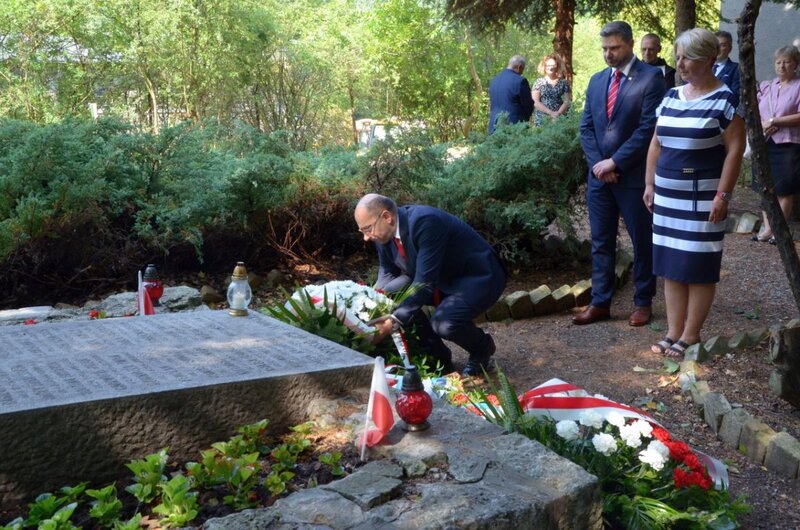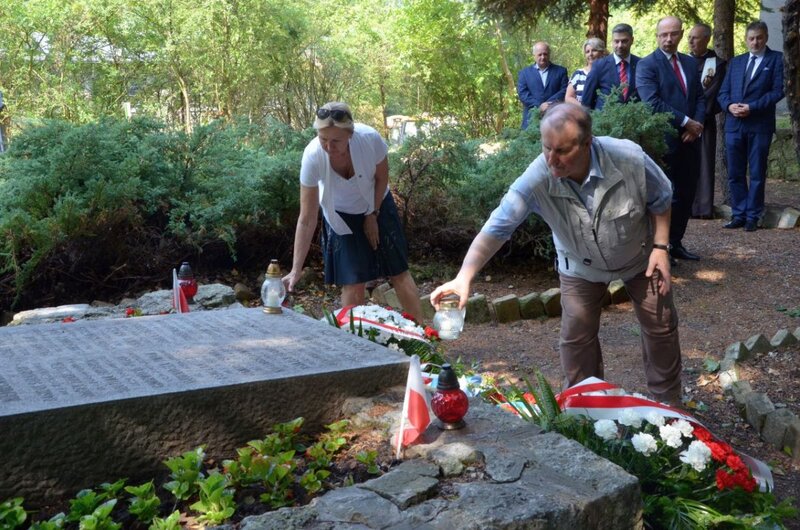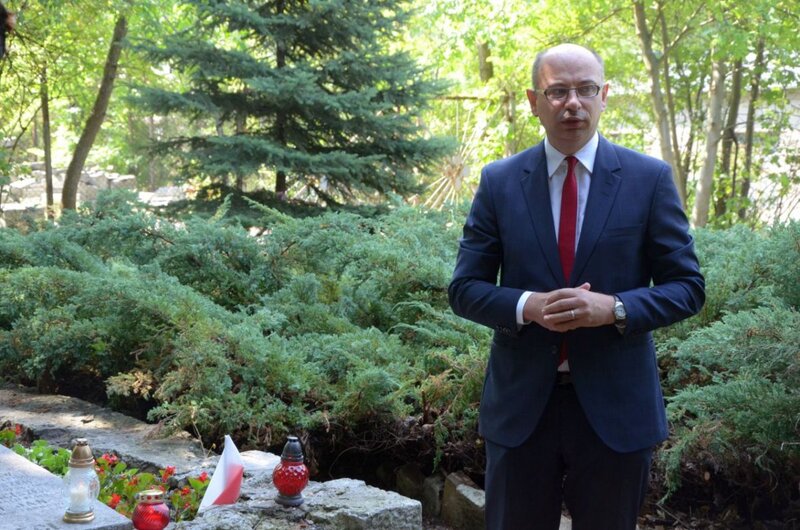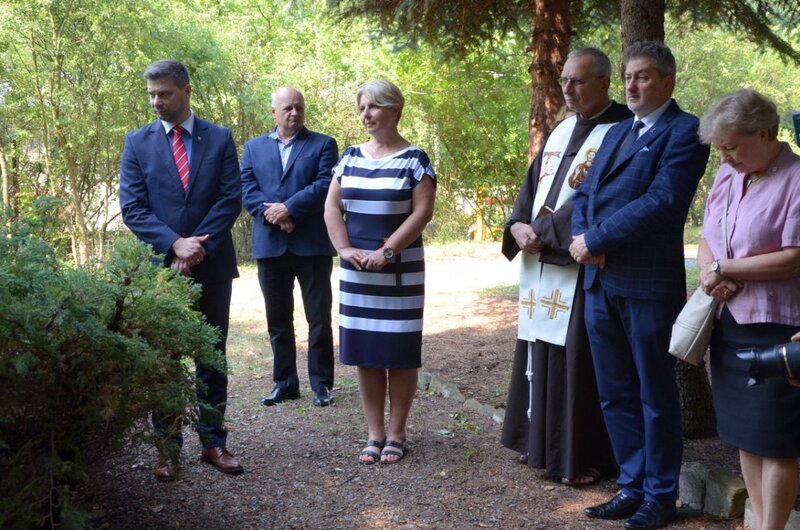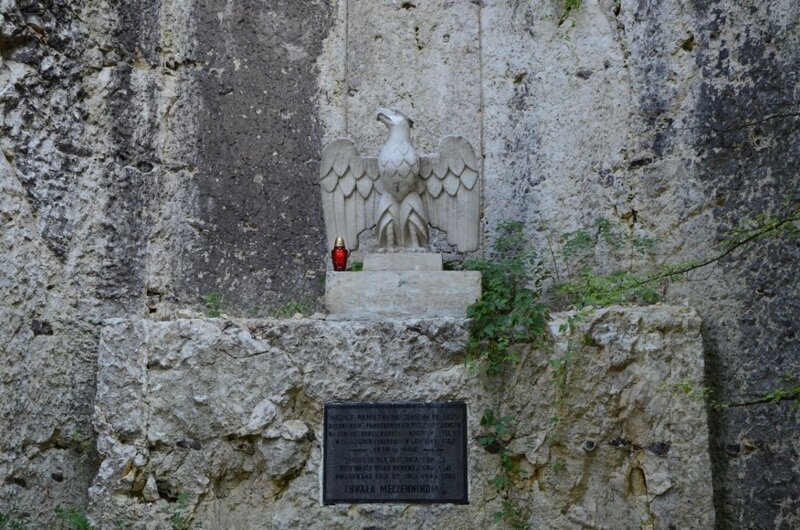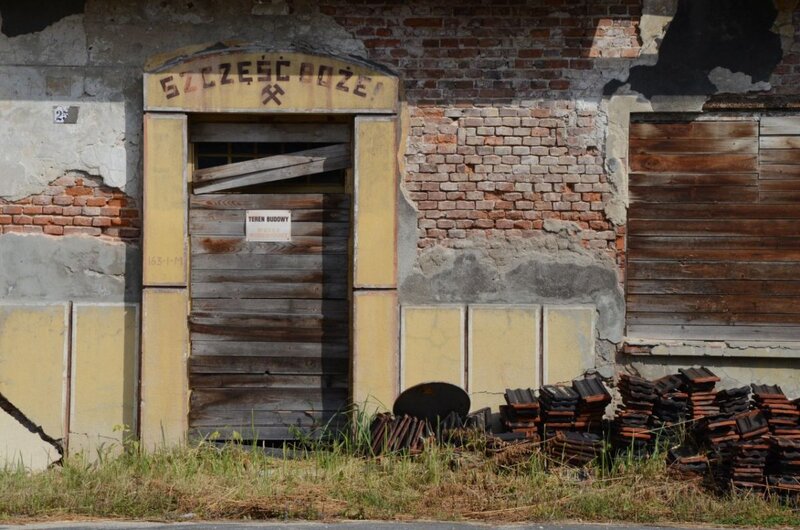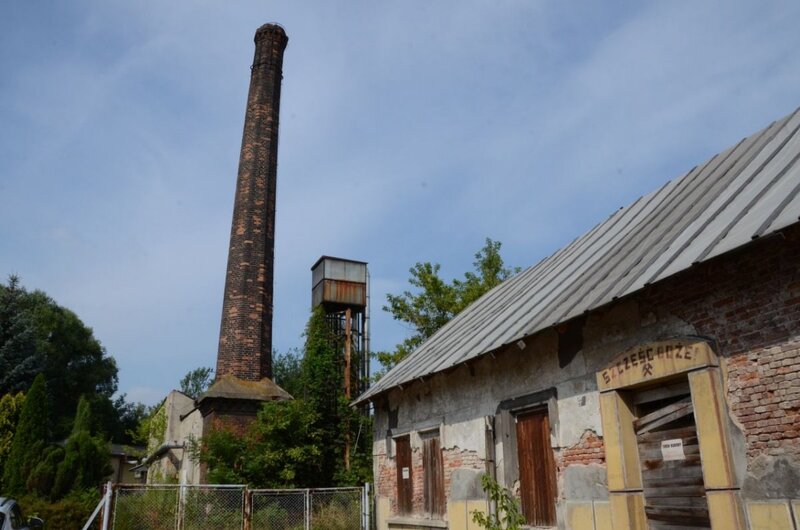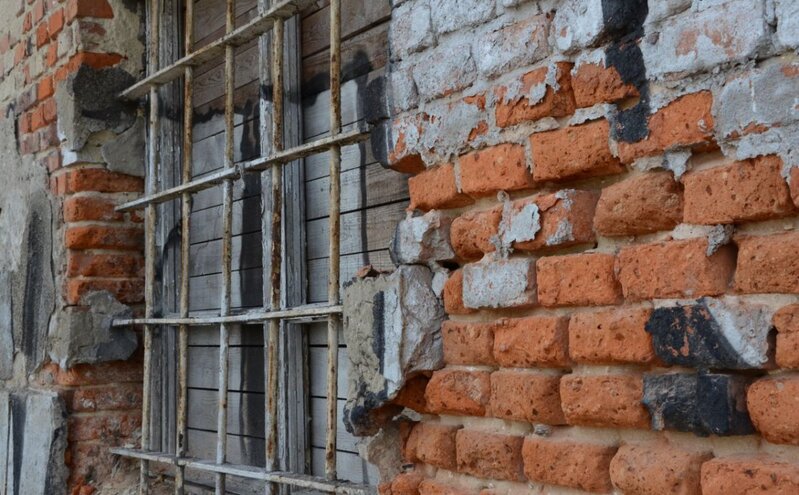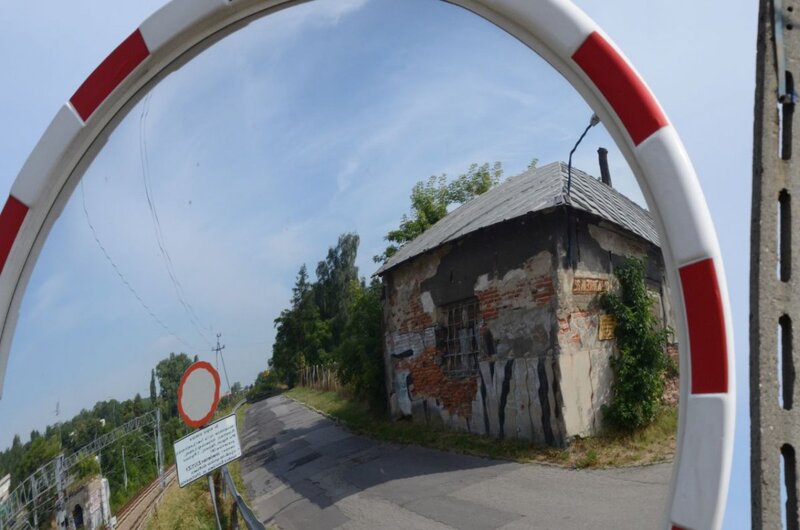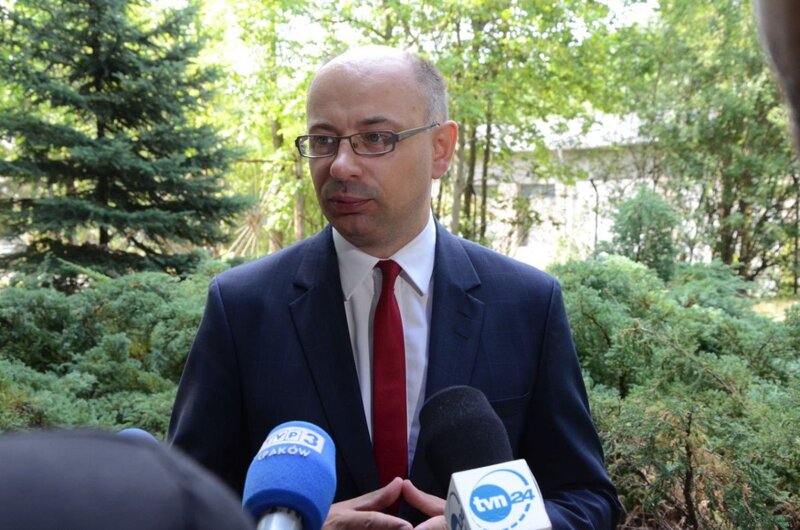The modest ceremony began with a prayer for the victims of German terror, led by Father Rufin Maryjka. The assembled then laid flowers and lit candles at the mass grave of the prisoners who had been killed. The Voivode was represented by Director Joanna Florkiewicz-Kamieniarczyk from the Małopolska Voivodship Office. The Director of the Kraków Museum Michał Niezabitowski and representative of the President of the city and a delegation from the Association "Freedom and Independence" Southern Area were also present.
At the end of the ceremony, the Deputy President of the Institute of National Remembrance spoke about how many places of memory in Kraków are devoted to Polish victims of German terror (including Krzesławice, Przegorzały and Płaszów). “This shows how great the scale of Polish martyrdom was and how terrible the years 1939-1945 were,” said Dr Szpytma. He added that the IPN Branch in Krakow in cooperation with the city authorities wants to renovate the memorial site in the former “Liban” camp in order to make it more widely available to the public. Currently, it is located in an area used by a municipal road company.
The German labor camp ”Liban” (1942-1944)
Implementing the program of the liquidation of the Polish elites and gaining labour for war purposes, the German occupant created camps on Polish territories, the majority of which were labor camps. Extremely difficult conditions prevailed in the penal camps of the Construction Service. The Baudienst organization was one of the forms of forcing Poles to work for the Third Reich. Recruitment took place on the basis of obligatory enrollment of young men or through voluntary applications. Hans Frank appointed Heinrich Hinkel as the Commandant of the Construction Service in the General Government. Penal camps were created for people evading work. The rigor in them was very severe. The prisoners were subjected to brutal repression.
In the Kraków district, the first penal camp was established in October 1940 in Dębie. In June 1942, the prisoners of this camp were transferred to Kraków. In April the area in the vicinity of Za Torem 22 Street was surrounded with barbed wire in preparation for the arrival of the first prisoners. The camp was set up in a quarry, the name of which was derived from the name of its former owner - Bernard Liban.
The camp was guarded by the Sonderdienst, and from the end of 1943 by armed Ukrainians from the Construction Service. The living conditions were catastrophic, and the food rations were minimal. There were no sanitary facilities in the camp. Prisoners were not given clothes, after some time they wore rags and what was left of their shoes or remained barefoot.
Work in the camp was extremely hard. It consisted of quarrying stone, burning lime and preparing aggregate for road construction. The work was accompanied by rushing and beating, with frequent fatal accidents. In the case of a prisoner's escape, a regular flogging penalty was applied. Every tenth prisoner was selected from the detachment and beaten in front of the other prisoners.
It was only from mid-1943 that the conditions in the camp improved slightly. A sanitary installation was set up. Prisoners began to be supplied with clothes. Information on their number is very divergent. The total number of prisoners who have gone through the camp is estimated at around two thousand.
In July 1944, due to the approaching front, panic prevailed in the camp. Most of the Ukrainian guards escaped. The prisoners also escaped in mass. A group of 23 people -the sick and those unable to escape was left. During the night of 21- 22 July, the Germans massacred the remaining people in the camp. Franciszek Bobek, who accidentally found himself near the camp, was also shot dead, as the perpetrators of the murder most probably regarded him as an unnecessary witness to the crime. Only three prisoners managed to save themselves.
Camp commandant, Bruno Benecke, sent a report to his superiors that 21 people were shot dead during the escape. The bodies of the murdered were buried at the foot of the rock next to the former prisoners' quarters.
After the end of the Second World War, the "Liban" camp and the acts committed there became the subject of an investigation by the Prosecutor's Office and by the Main Commission for the Investigation of German Crimes in Poland. It was established that the murder had been prepared by the commandant of the camp, who had wanted to avoid official responsibility for allowing the Ukrainian guards and prisoners to escape.
Text: Roman Gieron
